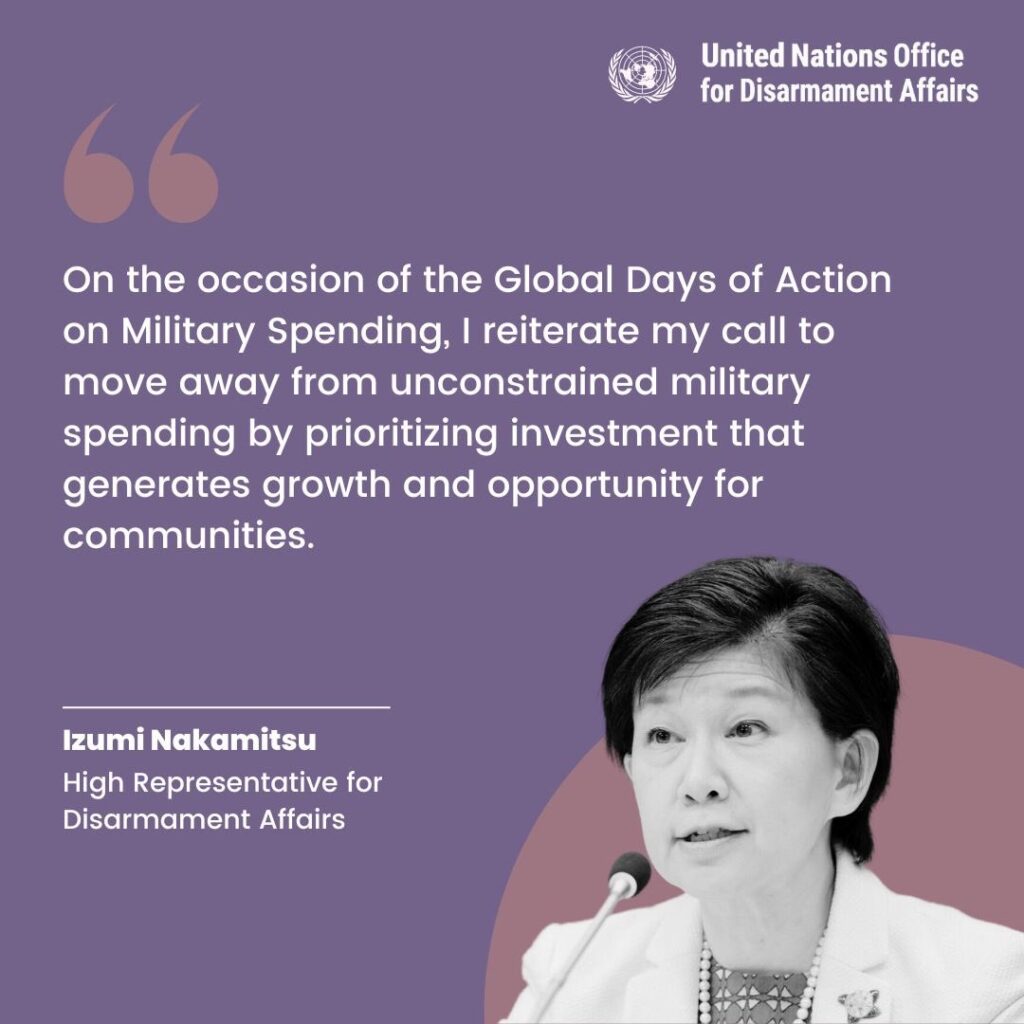UNODA’s Statement on the Global Days of Action on Military Spending
Izumi Nakamitsu, High Representative for Disarmament Affairs, issued the following message on the occasion of the 2024 Global Days of Action on Military Spending.
The figures released today by the Stockholm International Peace Research Institute (SIPRI) show that global military expenditures rose by 6.8 per cent in real terms to 2,443 billion US dollars in 2023 – a new record high. This amounts to approximately 2.3 per cent of global gross domestic product (GDP) or around 306 US dollars for every person on the planet.
To further put this number in perspective, official development assistance in 20231 amounted to approximately 9 per cent of the resources allocated to global military expenditure. The United Nations regular budget2 for 2023 was less than 0.14 per cent of global military spending.
In my statement on the Global Days of Action on Military Spending last year I condemned the unprecedented increase in military spending for the year 2022 which, in part, were due to the influx of weapons in Ukraine as a result of the invasion of that country by Russia. Six months ago, another deadly conflict broke out in the Middle East between Israel and Hamas. The ebb and flow of military spending is largely dependent on the intensity of conflicts and levels of mistrust among states. With the continuation of arms transfers in these two devastating conflicts and in the pre-existing ones in other regions, there is every reason to fear a continuing upward tick in military spending next year and possibly beyond.
This is happening at a time when more resources are needed for poverty eradication, sustainable development, climate action, gender equality and crisis recovery.
Member States must break this vicious cycle of unconstrained military spending. As stated in Article 26 of the UN Charter, the clearest path to international peace and security is through the least diversion of human and economic resources to armaments. Resources for programmes and services that benefit the people and the planet should be prioritized over military spending. The 2030 Agenda must remain at the top of the political agenda. Addressing global development challenges can also help alleviate some of the structural factors that drive rising military expenditure. We must commit to reducing the human cost of weapons by moving away from militarized approaches to peace.
Our security cannot be measured by the strength of our armies alone. On the occasion of the Global Days of Action on Military Spending, I reiterate my call to move away from unconstrained military spending by prioritizing investment that generates growth and opportunity for communities. Together, we must reimagine a vision of security that places people at its core, prioritizes prevention, reduces reliance on armaments, and ultimately responds more effectively to contemporary security challenges through dialogue and trust.
1 According to OECD data, official development assistance in 2023 reached a new all-time high of USD 223.7 billion. https://www.oecd.org/dac/financing-sustainable-development/development-finance- standards/official-development-assistance.htm
2 On 30 December 2022, at its seventy-seventh session, the UN General Assembly adopted a $3.4 billion budget for 2023. https://press.un.org/en/2022/ga12486.doc.htm
You can download this statement as a pdf here.




